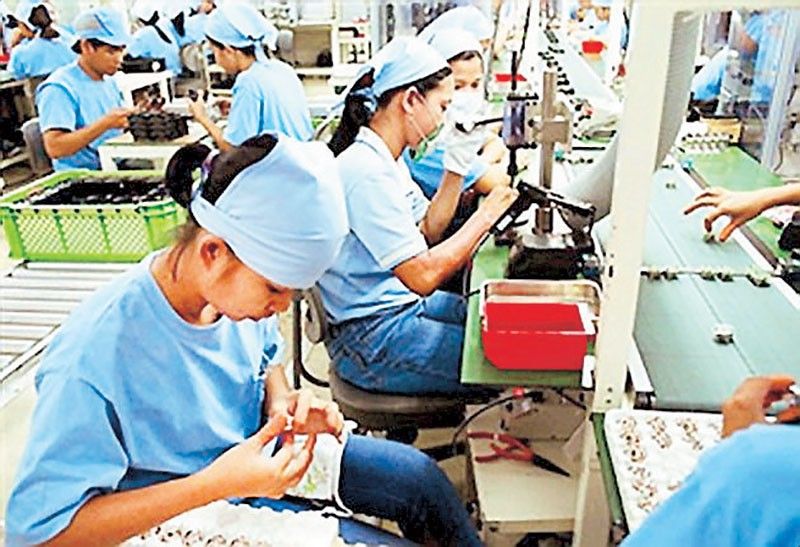Factory activity expands at fastest pace in 5 months

MANILA, Philippines — The country’s manufacturing sector in April expanded at the fastest pace in five months, supported by strong demand.
S&P Global said the Philippines’ manufacturing purchasing managers’ index (PMI) stood at 52.2 in April, up from 50.9 in March.
A reading above 50 indicates an overall increase from the previous month, while below 50 denotes a contraction.
The PMI is based on a survey of around 400 manufacturers and takes into account the following: new orders, output, employment, suppliers’ delivery times and stocks of purchases.
“Building on growth seen in the first quarter of the year, the Filipino manufacturing sector showcased further gains in April. A quicker rate of expansion was observed for new orders, which in turn triggered a renewed and solid rise in production,” S&P Global Market Intelligence economist Maryam Baluch said.
The growth in new orders in April was the fastest seen since November last year.
Baluch said business from overseas markets also grew at a stronger rate.
In particular, export orders rose for the third straight month and at its quickest pace in five months.
Favorable demand conditions and higher production requirements pushed manufacturers to raise purchasing activity and build their inventory.
“Stockbuilding became more widespread in anticipation of greater future output,” Baluch said.
Despite the continued increase in employment in the manufacturing sector in April, the rate of job creation eased slightly from March.
“Meanwhile, prices data indicated a relatively subdued inflationary environment, which also is likely to help support growth in the coming months as firms were able to price more competitively,” Baluch said.
While the Philippine manufacturing sector has a positive outlook for the coming months, with nearly 25 percent of surveyed firms expecting growth in output, S&P Global said the degree of confidence dropped to a four-year low.
Commenting on the data, Rizal Commercial Banking Corp. chief economist Michael Ricafort said the manufacturing sector could benefit from easing inflation that would support local policy rate cuts, especially if the US Federal Reserve starts to trim rates later this year.
He said this “could reduce borrowing or financing costs and could support some pick up or recovery in investments as well as in manufacturing or production activities locally and globally.”
- Latest
- Trending


























 Exclusive
Exclusive